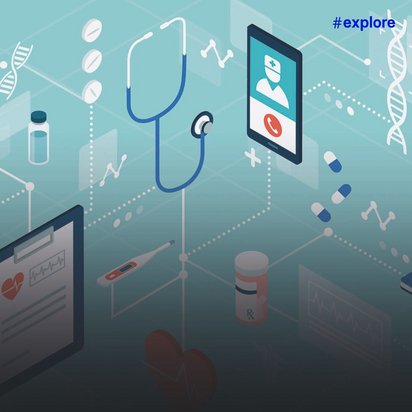A quick question to start with
How secure are apps on prescription?
How safe are prescription apps? Find out the answer on #explore.

A quick question to start with
How safe are prescription apps? Find out the answer on #explore.

21. January 2021
Quantum computers promise a computing capacity that today’s computers can only dream of. This opens up completely new possibilities – for example in the development of medicines, or the improvement of traffic flows or weather forecasts. But the catch is this: these supercomputers of tomorrow will be able effortlessly to hack encryption methods which are considered secure today. Lucie Plaga of TÜViT explains why this is already a problem, what post-quantum cryptography is all about, and why you don’t need a quantum computer for it
#explore:What makes the quantum computer a problem for today's encryption systems?
Lucie Plaga: Unlike a conventional computer, a quantum computer is based on computations using quantum particles, which also allows for other computational operations. Quantum particles include individual atoms or light particles, for example. And this is a serious problem for asymmetric encryption methods. These are used wherever the communicating systems can’t exchange their “secrets”, meaning their security key, in advance. Senders and recipients use different keys—a private key and a public one that might, for instance, be stored in the cloud. All our online communication and data exchanges between vehicles, devices and machines on the Internet of Things are based on asymmetric cryptography. There’s no way a classic computer can crack this encryption, but it’s no match for a quantum computer.
At the moment, quantum computers are still rare and a long way away from widespread use. So why is this a problem that we need to be looking at today?
We don’t expect bigger quantum computers to be in use sooner than ten to thirty years from now. But it’s going to take time to change over from our current systems. And a lot of data and products have very long life cycles. For example, you can store health data today for decryption in ten years. And if I’m going to buy a networked device or car, I need assurances that it will continue to work in the future and can’t be hacked by a quantum computer.
This is an article from #explore. #explore is a digital journey of discovery into a world that is rapidly changing. Increasing connectivity, innovative technologies, and all-encompassing digitalization are creating new things and turning the familiar upside down. However, this also brings dangers and risks: #explore shows a safe path through the connected world.